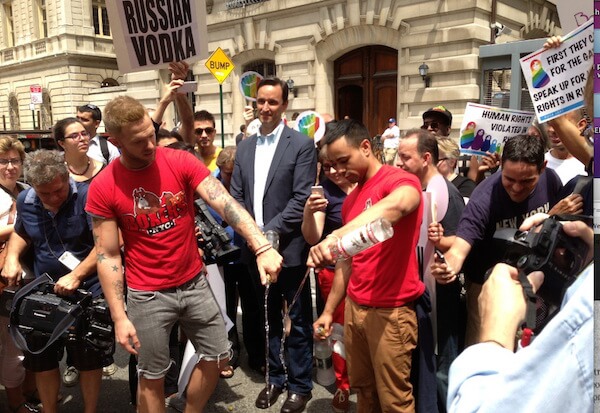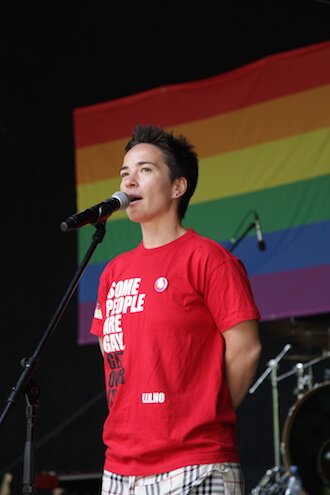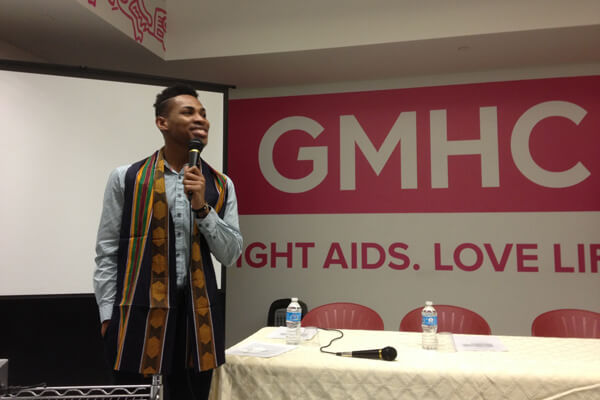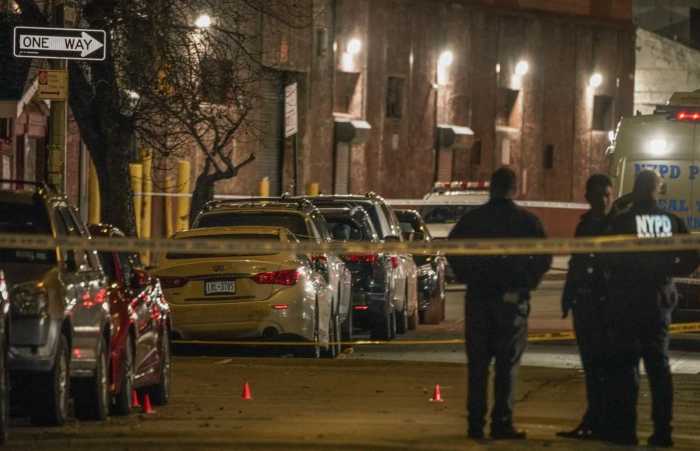BY SEBASTIAN MAGUIRE | I am generally loath to praise our country’s dysfunctional immigration system. Both immigrants and their advocates can readily attest to the Kafkaesque frustrations of dealing with mindless bureaucrats and heartless policymakers.
A shining exception to my general attitude is asylum. Since 1994, when Attorney General Janet Reno issued a decision recognizing sexual orientation as a category subject to protection under asylum law, the United States has saved the lives of countless lesbian, gay, bisexual, transgender, and queer individuals. LGBTQ immigrants from almost every corner of the globe have made their ways to the US to seek asylum and establish new lives.
Immigrants, especially LGBTQ individuals, have enriched our country beyond measure. Just as important is the impact these brave individuals have had on the international human rights movement. While many asylees and asylum seekers have understandably sought quiet lives in their adopted homeland, others have become bold ambassadors for global equality. Each of them has a harrowing yet inspirational story.
Global Justice
Working his way up from the Kingston ghetto, Dwayne Brown was poised to complete graduate studies and commence a teaching career when he had to flee. He has since founded Jamaica Anti-Homophobia Stand, which mobilizes world opinion against that nation’s culture of anti-LGBTQ violence.
Wyatt Tan came to the US for school, fell in love, and married his boyfriend. Among his compatriots, he is a rare voice speaking out against the homophobia he experienced in Malaysia and for marriage equality here in the US.
Andrey Mironov escaped to the US after connecting with activists, including clergy affiliated with the LGBTQ-affirming Metropolitan Community Churches. Andrey now helps queer Russian émigrés adjust to life here.
In the relative freedom afforded by the US, these exemplary individuals have found their voices. They have overcome the crippling fear and silence of their repressive societies and bravely spoken out in a way that perhaps only the earliest gay rights pioneers of this country could fully appreciate.
Many who could and should avail themselves of protection, however, are not able to do so. Asylum requires applicants first to find a way across the border. This limits asylum’s usefulness to those who can obtain a visa (often a remarkable feat in itself) and the funds to come to the US. The most vulnerable immigrants from the most homophobic countries often have little hope of leaving.
The process by which our government brings refugees to US soil has so far eluded most at-risk LGBTQ individuals. The US, in recent years, has welcomed large numbers of refugees from Bhutan, Burma, Iraq, and Somalia and smaller numbers from dozens of other countries. But what about the LGBTQ individuals driven from their homes in Uganda, Jamaica, and Pakistan?
Despite government-sanctioned persecution in countries such as Jamaica, the US has no plan to help LGBTQ Jamaicans leave en masse and no willingness to help individual Jamaicans who plead for refuge before consular officers. In a country sharply divided by class, wealthier Jamaicans are able to leave the island. In contrast, the Gully Queens, featured in a VICE News documentary (youtube.com/watch?v=ILXVpFQVEbw and below), eke out precarious lives in drainage ditches a short distance from the US embassy. Without the help of the US or some other country, they have no hope of escaping the ever-present specter of violence that forces them into the gullies.
Inexcusably, our country’s refugee resettlement efforts have failed to include LGBTQ victims of persecution. Federal policymakers need to remove this vestige of institutional homophobia and transphobia in our immigration system and implement a plan to admit such refugees as soon as possible.
Many who are able to come to the US find the high cost of living quickly drains their resources and they usually cannot rely on family networks so critical to the success of other immigrants. In addition, every new immigrant must deal with navigating the complexities of their new country. The paucity of services available to LGBTQ immigrants is surprising considering such a large portion of New York City’s LGBTQ population has recently immigrated here. Our community’s organizations need to step up, and all organizations working with immigrants need to incorporate LGBTQ concerns into their work. LGBTQ immigrants would particularly benefit from efforts to reform detention policy and increase access to legal representation for indigent people.
Given how valuable asylum has been, it is, and should remain, a readily available option for LGBTQ immigrants. To ensure this, all asylum adjudicators should receive mandatory training on how to deal with sexual orientation and gender identity in different cultural contexts. And federal authorities must promptly respond to complaints and root out prejudiced adjudicators. Disparities in outcomes in all types of asylum cases depending on where immigrants apply are well documented. Exacerbating this problem are personal prejudices against LGBTQ individuals held by some adjudicators, examples of which I have unfortunately witnessed.
For a generation now, a quiet revolution, spurred by our asylum policy, has transformed the face of global LGBTQ activism. Without the safety afforded to courageous immigrants, the pace of change here in the US and throughout the world would be much slower. We owe it to them and to our human rights movement to help them come here and adjust to life once they arrive.
Sebastian Maguire is the co-founder and director of the Asylum Seeker Assistance Program of the Metropolitan Community Churches’ Global Justice Institute.


































